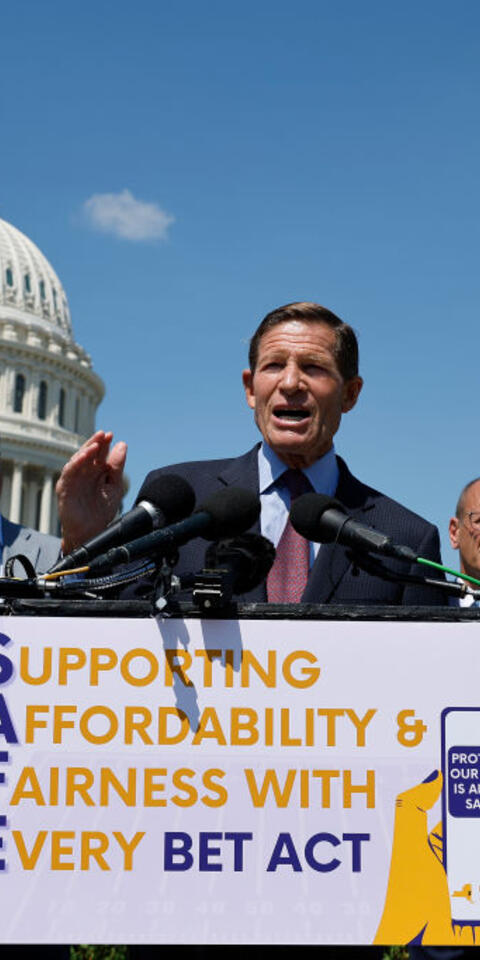US Representative Paul Tonko (D-NY) and Senator Richard Blumenthal (D-CT) introduced a bill to push the US federal government into the ever-growing sports gambling landscape.
Tonko proposed the SAFE (Supporting Affordability and Fairness with Every) Bet Act to combat the "inherent public health implications from widespread legalized sports betting". The Act seeks to create certain standards that individual states must meet before sports gambling can be fully legal in their state.
Today, I introduced the SAFE Bet Act that creates nationwide consumer protections for the mobile sports gambling industry. This industry has hijacked Americans' love of sports by recklessly peddling a known addictive product. Our bill puts an end to those dangerous practices. pic.twitter.com/4gOPfVPNTb
— Paul Tonko (@RepPaulTonko) September 12, 2024
You can get a breakdown of the SAFE Bet Act from Tonko's website here.
What would it mean for sports bettors if the bill passes into law? Here's a breakdown of what you as a sports gambler need to know.
How The SAFE Bet Act Impacts Sports Bettors
The first step of the SAFE Bet Act would be to create a federal prohibition on sports betting. A move that would undo a 2018 ruling by the US Supreme Court to strike down a sports gambling prohibition thanks to the Professional and Amateur Sports Protection Act (PASPA). The PASPA was deemed not to be consistent with the US Constitution. It remains to be seen how this new Act would be in line with the US Constitution.
From there, states could apply to be exempted from this prohibition to the Attorney General through the Department of Justice. In this application, states need to prove they meet certain federal standards. And that's where the impact on individual sports bettors lies.
States that have already legalized gambling would not be grandfathered into this new Act but would have a year to comply with these federal standards. These new standards are in advertising, affordability, and AI.
The biggest impact for players comes from affordability standards. Per the SAFE Bet Act, operators can't accept more than five deposits per player in 24 hours. That barrier could be an issue with the growing popularity of micro-betting where sports bettors can wager on individual moments in a game.
Deposits could no longer be made through credit cards if the SAFE Bet Act is approved. That's another possible pain point for gamblers with credit card deposits being popular at many of the best sportsbooks.
The SAFE Bet Act would also force operators to conduct affordability checks on wagers above unspecified amounts. That amount is yet undetermined. It would also require operators to check a newly created national self-exclusion list based (through the Substance Abuse and Mental Health Services Administration (SAMHSA)) on data from state sports gambling regulatory entities.
Further to that wagers on amateur sports would be bared. Exceptions would be made for the Olympics and college sports. But prop betting on college sports would not be allowed. I don't have to tell you how big of an issue that is with the popularity of betting on college football and the March Madness tournament.
What Else Does The SAFE Bet Act Do?
As previously mentioned, the SAFE Bet Act would set standards for advertisement and AI as well as affordability.
For advertising, the SAFE Bet Act would bar sports gambling advertisements between 8 AM and 10 PM, no ads during live sporting events, and no promotions to "induce" gambling.
For AI, the Act would bar AI from tracking gamers' activities and from creating individual gambling offers or products.
These are all minimum standards and individual states could set stronger ones should they choose.




